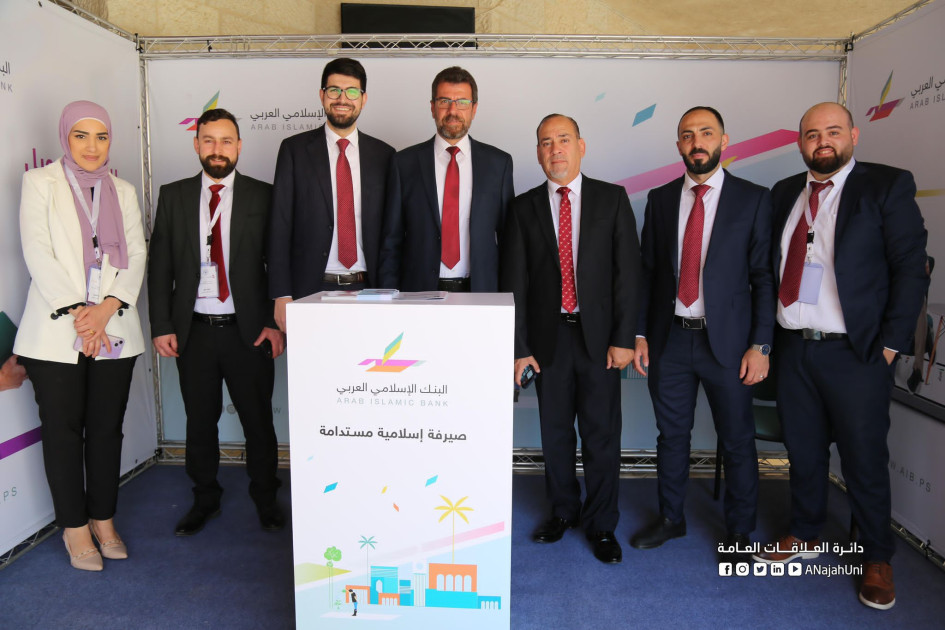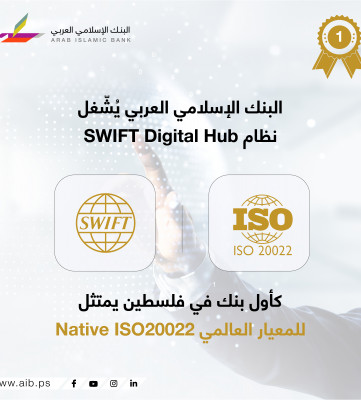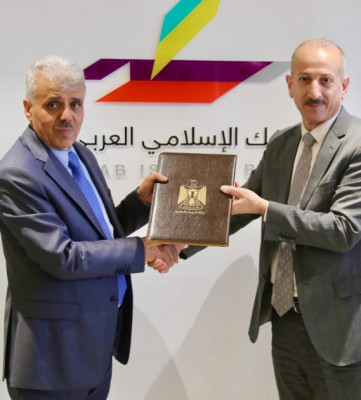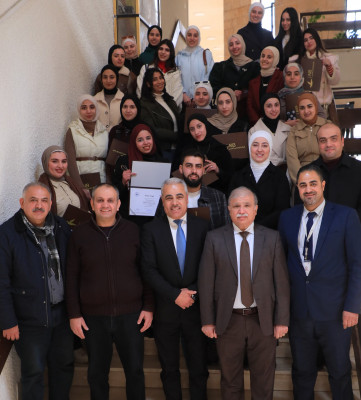Conference on Economic Sustainability

The Arab Islamic Bank took a leading role as the primary sponsor for the Conference on Economic Sustainability in the Era of the 5.0 Industrial Revolution, hosted at An-Najah National University. The conference saw the active involvement of numerous distinguished and official personalities, including representatives from the Arab Islamic Bank.
The conference aimed to address the challenges and impediments confronting development initiatives for the Palestinian economy and its improvement. This was accomplished through an examination of the key components of this economy, presenting examples from the experiences of certain countries in the field, analyzing and evaluating them. The overarching objective was to suggest practical solutions, policies, and measures to bolster economic development plans across diverse sectors and elevate them at both the public and private levels in Palestine.
The General Manager of the bank, Mr. Hani Nasser, stated that the bank's sponsorship of this conference is part of the bank's commitment to social responsibility. He emphasized that the bank always strives to take a leading role in its social contribution, particularly in issues related to education, health, and poverty alleviation. He added that the bank is consistently persevering and seeking to provide a sustainable environment and economy for the Palestinian community. Furthermore, he affirmed the bank's continuous dedication to actively contribute to the development of society by providing opportunities for development and investment. The bank has been recognized by securing the second position among local banks in social contribution for the year 2022.
Mr. Nasser explained that at the Arab Islamic Bank, we exert all our efforts to achieve sustainability through three pillars. Firstly, environmental sustainability, where the bank seeks to reduce carbon footprint, promote the use of green energy, and minimize waste. Secondly, social and economic sustainability, manifested in enhancing financial inclusion, empowering women, activating the role of youth, supporting and encouraging innovation, small and medium-sized projects, increasing the volume of sustainable financing and products, and embracing digital transformation in the bank's programs and services. Additionally, the bank aims to strengthen partnerships with local and international community institutions. Thirdly governance, through which the bank aims to enhance transparency, information disclosure, and fully comply with the requirements and instructions of the Monetary Authority and relevant laws. The bank also protects the clients' information and privacy, respects their rights, and ensures equality in the provision of services. The bank also works to review the policies and procedures of its departments to ensure they are in line with the sustainability policy.
At a practical level, aligning with the bank's dedication to sustainability principles and the embrace of social responsibility, the Board of Directors has formed a Sustainability Committee. Furthermore, a specialized sustainability unit has been integrated into the bank's organizational structure. This unit is designed to implement diverse initiatives aimed at generating positive impacts on social, environmental, and governance levels. As a result, this undertaking adds significant value for all involved stakeholders.



